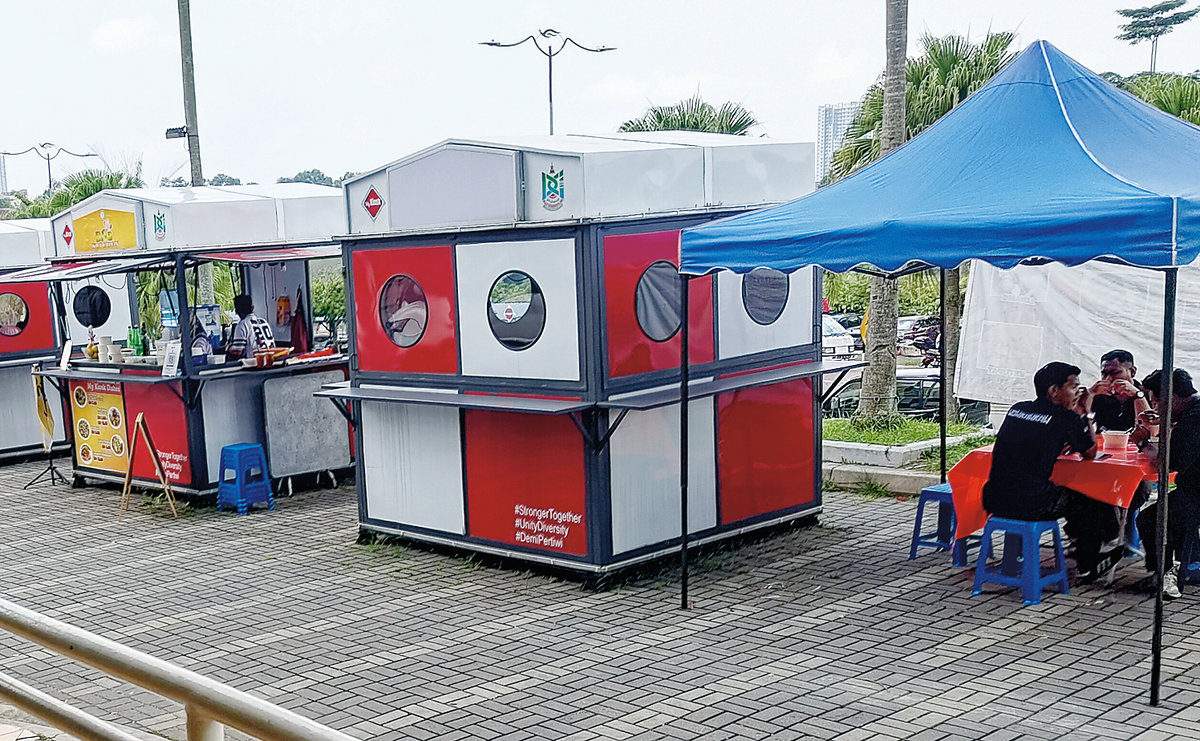PETALING JAYA: The success of the MyKiosk programme may ultimately hinge on two key factors – strategic location and the willingness of traders to seize opportunities.
A check by theSun at the Lake Park Hillpark parking lot in Puncak Alam, where several MyKiosk stalls are located, revealed strong interest from operators, encouraged by the steady stream of customers in the area.
The site, selected and managed by the Kuala Selangor Municipal Council, has been praised for its strategic placement with scenic surroundings and ample parking, making it an attractive and convenient stop for visitors.
While some traders acknowledged that rental fees for the kiosks are higher than for traditional roadside stalls, many reported encouraging sales.
They rejected allegations of cronyism in the selection of kiosk operators, stressing that the process was transparent and merit-based.
“Before operating this kiosk, I was trading under a tent nearby. Then, I found out through the council’s Facebook page that applications for the kiosks were open.
“I applied and went through the standard process. I filled in a form at the council office and was later called for an interview,” said Shafawati Abdul Aziz, 41.
She added that she was interviewed by a panel of 15, underscoring the council’s rigorous selection approach.
“They asked about my business experience, how long I’d been trading and my long-term plans. The focus was clearly on selecting committed entrepreneurs, not people who would sublet the kiosks.”
The entire process took about two months, and Shafawati has now been operating the kiosk for three months, earning a five-figure monthly income.
She expressed appreciation for the council’s location choice.
“If the kiosks are set up where there’s no demand, people won’t come, and traders won’t apply. It just won’t work.”
Shafawati added that MyKiosk could be the launchpad for small traders like her with dreams of eventually opening their own restaurants.
Adi Amri Rizman, 35, said hesitation among some traders to absorb higher costs might help explain why certain kiosks remain unoccupied.
Having previously spent two years as a roadside vendor, Adi also rejected suggestions of cronyism linked to the initiative.
“There’s no such thing. We applied on our own. There was no red tape or favouritism,” he said, adding that the process with the council had been straightforward.
He believes that both location and product selection play a key role in the success of the Housing and Local Government Ministry’s MyKiosk initiative, which aims to support the B40 group and MSMEs by providing standardised, safe and comfortable business spaces.
“In most cases, local authorities set up these kiosks in areas where informal trading was already taking place. Where there were once tents, there are now kiosks.”
On product strategy, Adi said traders need to be responsive to their surroundings.
“For example, a kiosk outside a shopping mall can’t sell the same goods as one by the roadside. Traders need to be adaptable. It is not just about selling what they’re used to, but about meeting local demand.”
As of November last year, 7,243 MyKiosk units have been approved across 133 local authorities nationwide.









